There was only one question on everyone’s minds when the final Dark Knight movie was announced: With the Joker (not so safely) behind bars, which villain could possibly outdo the clown prince? The arresting sociopath (kudos to the late Academy Award-winning Heath Ledger) had rained chaos down on Gotham City, hell-bent on terrorising the citizens and making Batman question his own morals.
Director Christopher Nolan, together with his brother Jonathan and screenwriter David S. Goyer, have found that answer in the story they crafted for The Dark Knight Rises.
8 years after the Joker’s antics and the white knight Harvey Dent’s death, the vigilante hero has turned reclusive but is pulled out of retirement by a new adversary with a thirst for raw carnage (“When Gotham is in ashes, you have my permission to die,” Bane says to Batman).
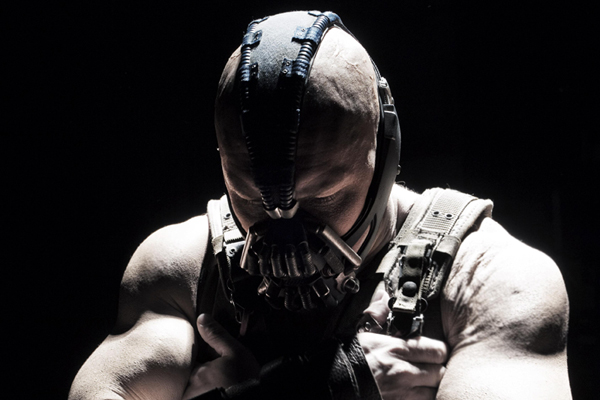
A welcome revamp from the pre-Nolan reboot Batman movies (which were hard for many Bat-fans, comic book fanatics and nerds everywhere to stomach), Bane (Tom Hardy) is no longer the Neanderthal-like creature he was crudely depicted in Joel Schumacher’s Batman and Robin. Instead, he’s the calculative brute force that Batman (Christian Bale) must face.
But of all the villians in the Batman comic universe, why Bane, you ask?
One of the few villains in the comic book series to push Batman to his limits (as comic book fans would remember from 1993’s The Man Who Broke the Bat), Bane is a whole lot of meat (and brains) for the Batman to beat in The Dark Knight Rises.
Hardy himself describes the intellectual, physically overwhelming Bane as “a big dude who’s incredibly clinical” and a “terrorist in mentality as well as brutal action”, in the Empire Online interview.
Trained by the League of Shadows and extradited as a mercenary and warrior, no wonder the identity thief in Inception had to pack on 14 kg worth of muscle to physically approximate the man with the heavy-handed fighting style.
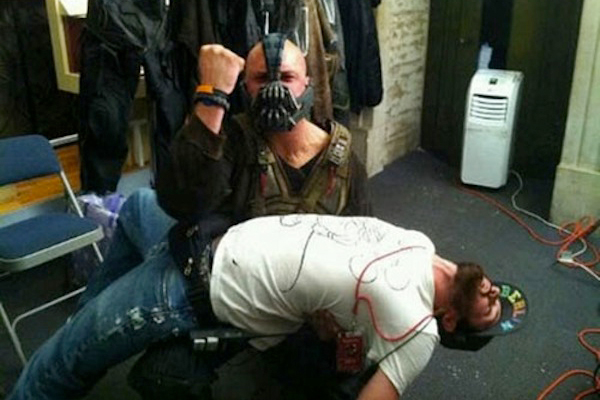
In the same interview, Nolan revealed that they wanted to “give Batman a challenge he hasn’t had before” through “our choice of villain and with our choice of story we’re testing Batman both physically as well as mentally”.
Just in time, too, since this is the final movie in the series continuing where its prequel, The Dark Knight, left off – with Batman marked as a villain and forced to fight in a less than spectacular state, under the very law (the Dent Act) that eradicated organised crime but was built upon a lie.
In The Dark Knight Rises, Batman is 8 years older and slower, and is struggling to regain his former glory. It really shows that there’s more to being Gotham’s protector than donning a cape and a cowl – he has to mentally and physically become the dark knight once again and there’s no instant formula or serum for success. The same dilemma was reflected in Bruce Wayne, wielding a walking stick, the visible signs of his growing psychological and physical fragility. As Nolan puts it, “[The last movie] is really all about finishing Batman and Bruce Wayne’s story. We left him in a very precarious place… He’s an older Bruce Wayne; he’s not in a great state.”
Nolan had simply played out the full consequences of the Joker’s actions in The Dark Knight. Cleverly depicted through the lifestyle of the formerly flamboyant Bruce Wayne, the waning power of Wayne industries, the carefully constructed lie around Harvey Dent’s death and the sobriety of Gotham’s residents dealing with the loss of the ‘white knight’ 8 years down the road, The Dark Knight Rises feeds off the momentum that the previous film had left.
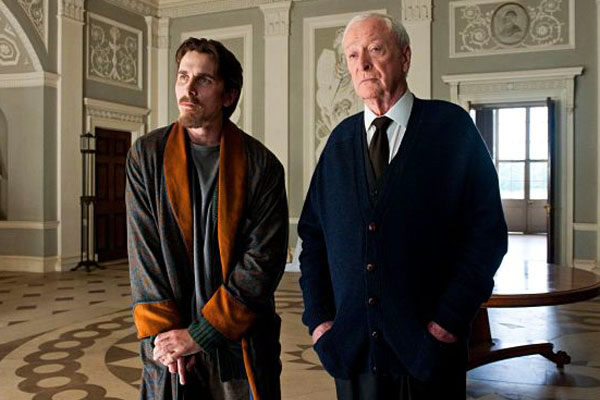
Michael Caine returns as the family butler and reprises the role of Wayne/Batman’s conscience as he did in the previous films. However, he takes a more serious stand, aggressively pushing for Wayne to reconsider his decisions, sensing “the power of belief” in Bane and emphasising that his previous advice, “enduring” Gotham’s problems may not make the cut this time round. Choosing to be the voice of reason, Alfred even goes as far as to challenge Wayne to see the possibilities of social justice instead of relying on the caped crusader where going all out on a highly trained, diabolical mastermind could easily mean death for the rusty billionaire.
The film’s character arc was tastefully done, with Batman/Wayne regaining the ground and pedestal he once stood on to protect his city while regressing back to his former self in Batman Begins, once again playing on the themes of character, fear and duality. This is a testament to Batman/Wayne’s mental fortitude that has its roots in approximately 73 years worth of comics and is wonderfully played through and embodied by Bale. And when the Bat (literally) gets back on his feet, every viewer can almost echo, “You’re in for a show tonight, son”.
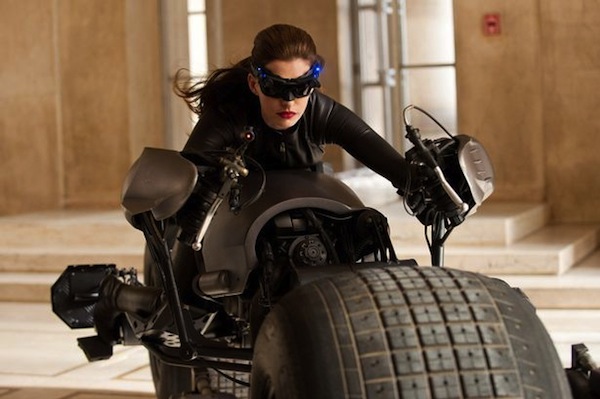
So that it’s not only testosterone bumping around, Anne Hathaway takes on the role of Selina Kyle, Catwoman, inhabiting the skintight suit previously donned by the delectable likes of Halle Berry and Michelle Pfeiffer. Hathaway is the jewel thief, pulling off the subtle appeal of the Cat, something that the bombshell Berry and excessively provocative Pfeiffer were unable to do.
Her transformation into Catwoman was instantaneous. From a shy chambermaid with panic evident in her eyes as she first meets Bruce Wayne, she changes gear into the sultry Cat with nary a miss, and a smouldering smile oozing with understated sexiness. Her first official line (“Oops”) as Catwoman would make a shiver run down anyone’s spine. Delivering her role as a support for the Bat, Hathaway manages to make the Cat shine in her own right without being too in your face; just like a real cat.
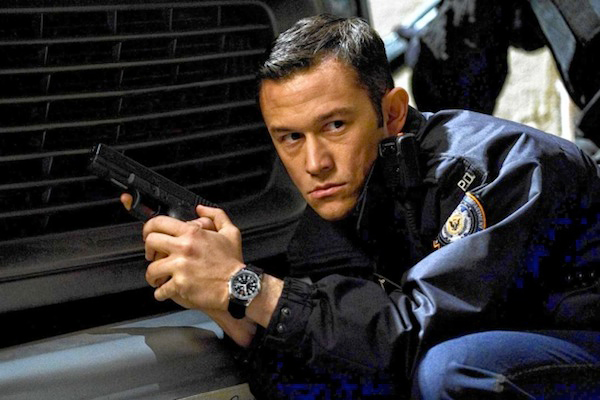
Another fresh face is idealistic cop John Blake (Joseph Gordon-Levitt) who brings a welcoming sense of determination and positive belief that helps make the dark plot of The Dark Knight Rises more palatable. The actor of (500) Days of Summer fame takes on the glamour-free life of an inspector personally selected by Inspector James Gordon (Gary Oldman). Personifying the innocent Gotham citizen drawn into one of the biggest cover ups (the other being Bruce Wayne as Batman), the Harvey Dent Act, he grapples with the decision and burden of knowing the conspiracy that keeps the peace in Gotham running.
Ultimately, The Dark Knight Rises isn’t the best Batman movie, despite being the final, climatic finish that rode on the many layers and plotlines driven by its predecessors. Instead, the Nolan brothers and Goyer have accomplished what every trilogy should do for the audiences: make each of the films in the trilogy memorable, so that each stands out on its own merit. This makes it hard for any one Nolan Batman movie to be strictly defined as the best Batman movie in the trilogy.
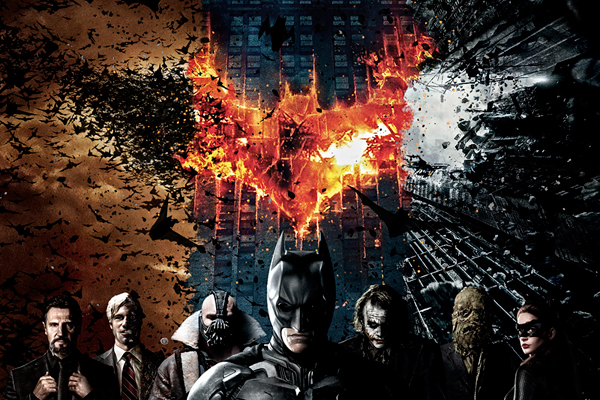
It is however, the fitting conclusion for Nolan’s Dark Knight trilogy, encompassing all the elements any superhero movie should have, and finally, bringing the story full circle and closing the book on every diehard Batman fan’s life. As reluctant as we are to say goodbye to the beloved hero, as we were with Harry Potter, UrbanWire can’t imagine a more fitting epitaph for the caped crusader.
Photo credits to: http://thedarkknightrises.com, http://empowerednews.net, http://blastr.com/, http://www.mirror.co.uk, http://thefilmcricket.wordpress.com, http://thepunkeffect.com, http://www.comicbookmovie.com
Rating: 5/5
Opens: July 19
Duration: 165 mins
Language: English
Genre: Action
Director: Christopher Nolan
Cast: Christian Bale, Michael Caine, Gary Oldman, Anne Hathaway, Tom Hardy
